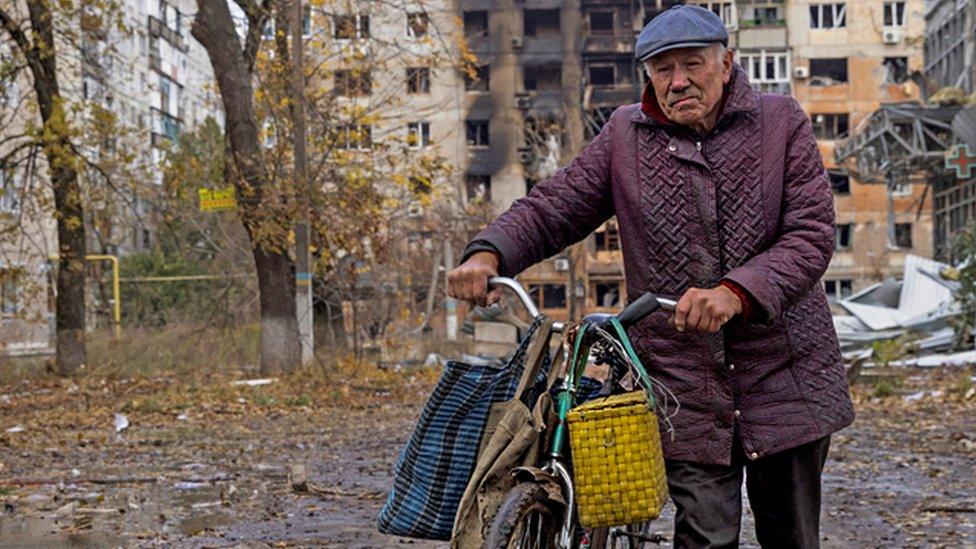Ukraine war: Locals forced to take Russian passports, report says
- Published
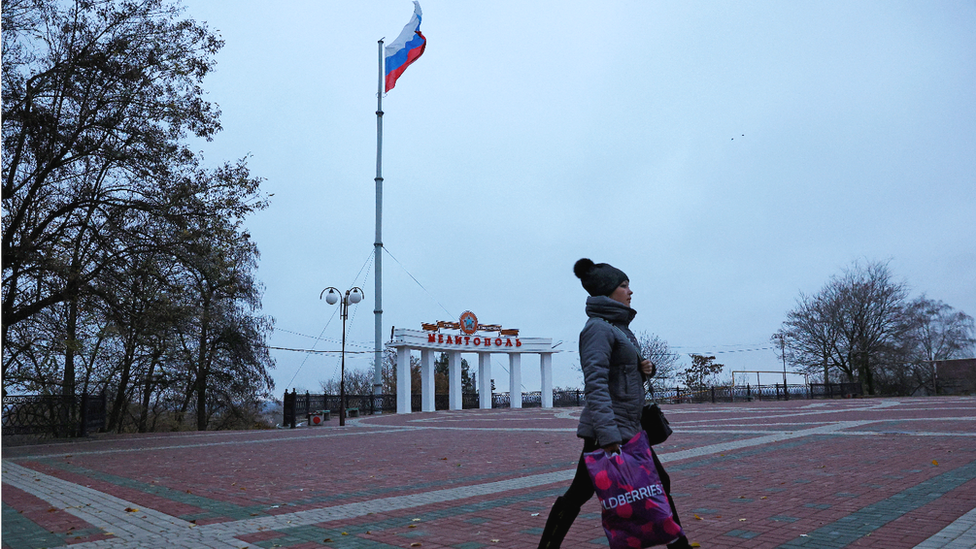
Russia is flooding occupied cities like Melitopol with its flags, currency and propaganda
The Kremlin has launched a wide-ranging campaign to force Ukrainians in occupied territories to become Russian, an investigation has found.
Ukrainians are being denied healthcare and free movement unless they take up Russian citizenship, evidence suggests.
The European Broadcasting Union (EBU), an alliance of public service media including the BBC, interviewed refugees for the investigation.
They spoke of relentless pro-Russian propaganda in the occupied lands.
One refugee from the occupied territories, Larysa, told the EBU's Investigative Journalism Network that one of her friends was not provided with insulin for her diabetes - a key part of treatment - until she applied for a Russian passport.
Another friend had to become a Russian citizen to have her broken arm treated, Larysa said.
Pensions are not provided without Russian passports, food is not provided without Russian passports, and medical services are out of the question
She also spoke of other types of pressure forcing Ukrainians to assimilate as Russians.
"Pensions are not provided without Russian passports, food is not provided without Russian passports, and medical services are out of the question. There are lots of checkpoints on the roads. And every time they stop you, they check your documents, and then say they will not let you through without a Russian passport next time.
"So people have to obtain these papers. Because if someone, say, has cows in one village and sells milk in another, it is impossible to move between villages."
Larysa's account of pressure to obtain Russian passports is corroborated by other refugees, such as Lyudmyla (not her real name) from the occupied part of Zaporizhzhia region.
"When you go to a hospital you need to have a Russian passport. If you do not have a Russian passport, they won't treat you. If you drive your own car and the patrol stops you, and you do not have a Russian passport, they can simply take your car away. So people are forced to obtain them. Retired people are forced to obtain Russian passports to receive pensions. It is a matter of survival."
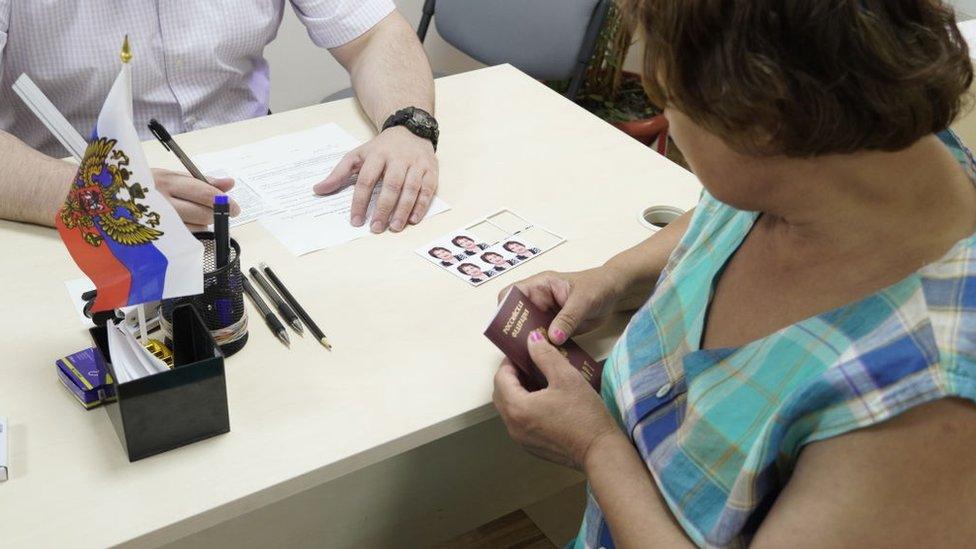
Authorities are reportedly denying Ukrainians healthcare and freedom of movement, unless they get Russian passports
In the past, Russia handed passports to residents of the breakaway Georgian regions of Abkhazia and South Ossetia, and later used them as part of its justification for invading Georgia in 2008.
Russian curriculum
But Lyudmyla and her friend Oksana (also not her real name) say the main reason why they left their homes was because their children were being forced to study the Russian school curriculum.
"We were provoked into leaving by the opening of a Russian school, and we were being forced to go there. They told us that if we did not let our children go there, they would take our children away and deprive us of our parental rights.
"When you send your children to the school, you must have a Russian passport. If you do not have a Russian passport your child will have problems and you will have problems.
"What kind of problems? You will be stripped of your parental rights. They will take our children away and that's it - you will be left without children," Lyudmyla says.
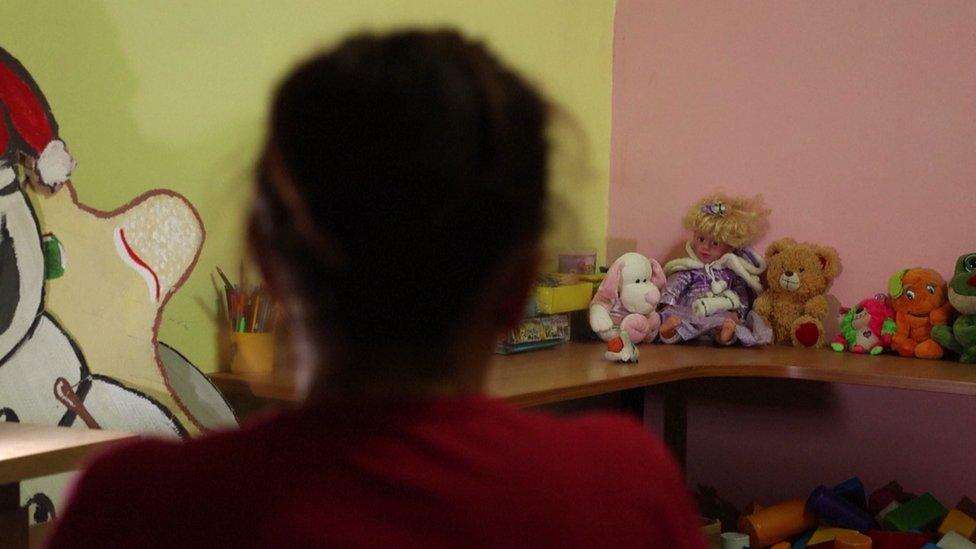
Lyudmyla has relatives still living under Russian occupation and is afraid of being identified
Earlier in 2023, Russia unveiled new schoolbooks which aim to justify its invasion of Ukraine. They falsely portray Ukraine as an aggressive state run by nationalist extremists and manipulated by the West, which allegedly uses the country as a "battering ram" against Russia.
Oksana says she left also because she was afraid that her 20-year-old son would be drafted into the Russian army and forced to fight Ukrainians.
Propaganda
Historian Artem Petryk was in the southern city of Kherson when it was occupied by Russians between February and November 2022. He described the Russian authorities' concerted efforts to influence the hearts and minds of the local population.
They introduced the Russian school curriculum, crucially the history course, and tried to impose Russia's world view
"From the first days of the occupation, they seized control of television and began broadcasting Russian radio. There was a stream of fakery about Ukraine and the West. It glorified the Russian army and the Russian state.
"And everywhere in the city they put up billboards with portraits of Russian tsars, commanders, and there were slogans saying that Kherson is a city with a Russian history, Russia is here forever, and so on.
"They tried to impose the Russian identity through the public space. They marked days of the Russian flag, days of Russia, put up billboards and, of course, tried to establish control over school. They introduced the Russian school curriculum, crucially the history course, and tried to impose Russia's world view," Mr Petryk says.
Larysa describes Russification efforts by the occupying authorities as another weapon used by Russia.
"This is the same as weapons - not the ones which shoot, but moral ones. Sometimes these moral weapons hurt harder than a machine gun. Because machine guns fire once and it's done, but the moral ones oppress you every day. This is very hard," Larysa says.
Related topics
- Published10 November 2023
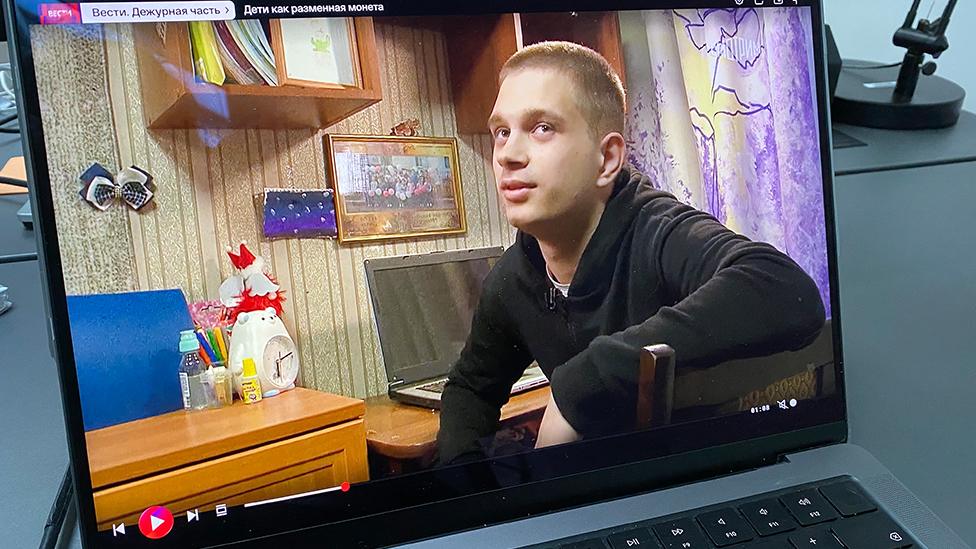
- Published26 October 2023
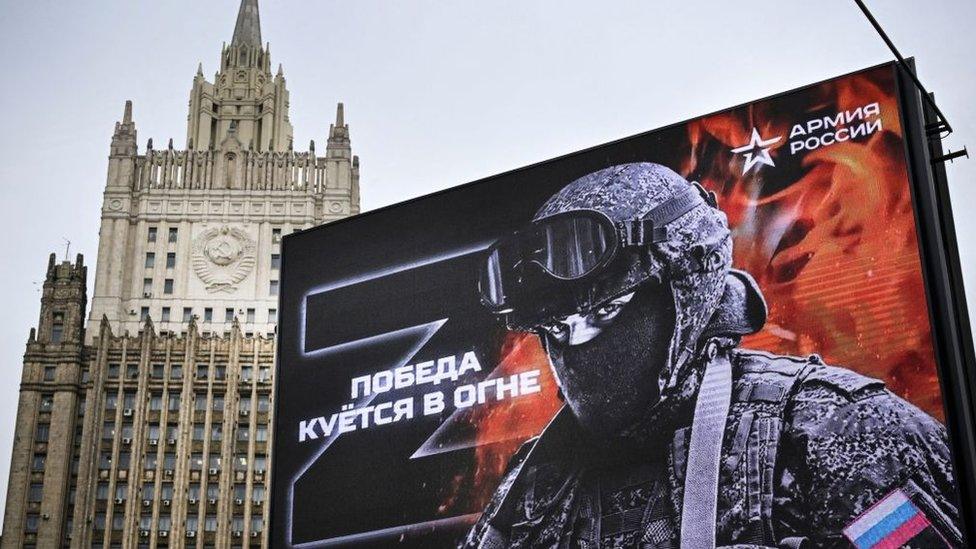
- Published24 October 2023
